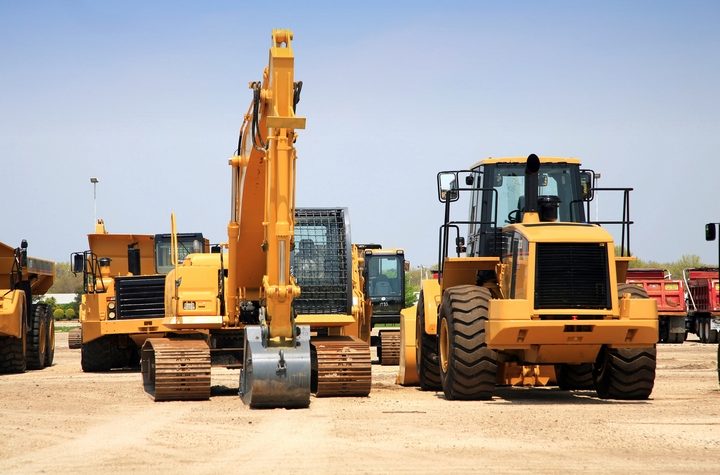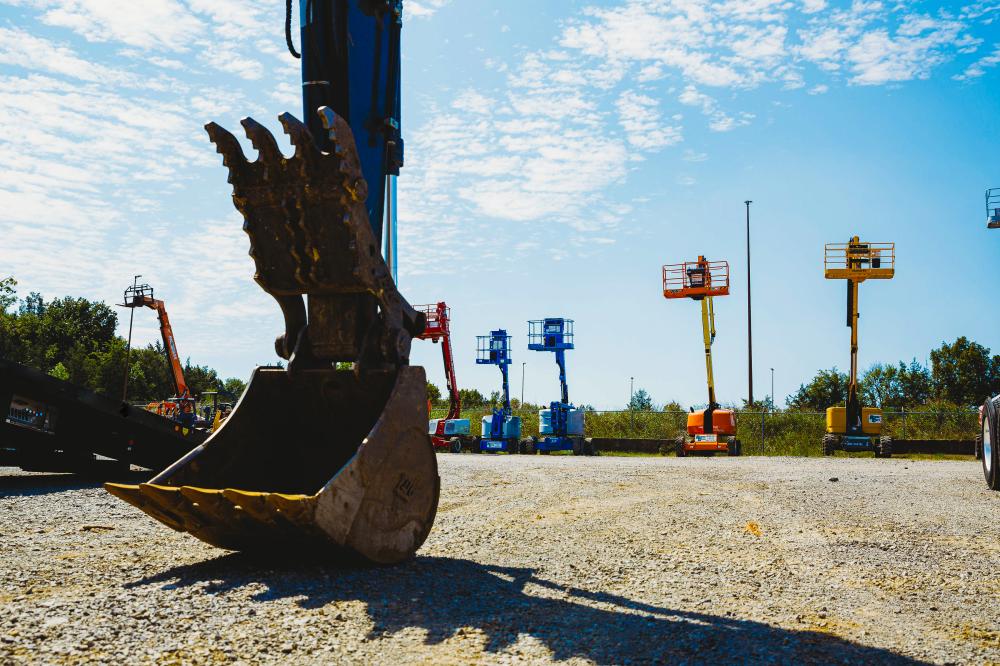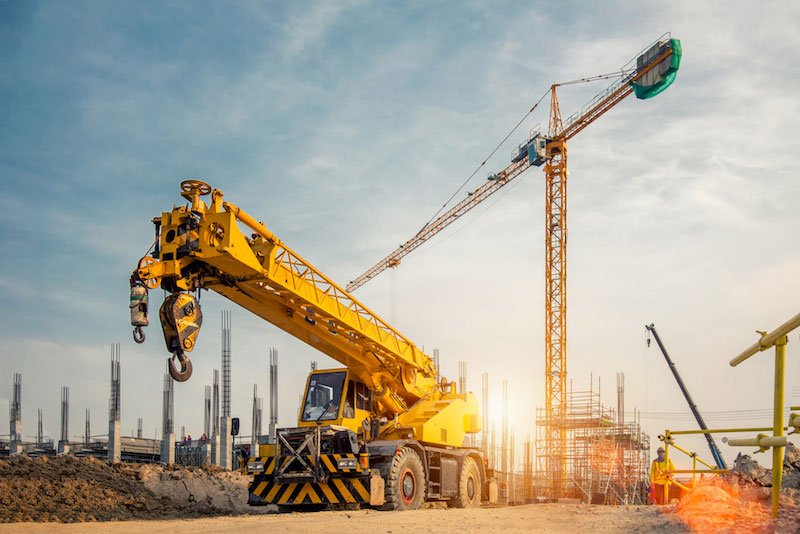Reputable Construction Equipment Rentals: Rent Scissor Lifts, Boom Lifts, and More from Us
Reputable Construction Equipment Rentals: Rent Scissor Lifts, Boom Lifts, and More from Us
Blog Article
Crucial Tips for Managing Hefty Equipment Rental Contracts and Logistics Efficiently
Successfully managing heavy equipment rental arrangements and logistics is vital for the success of any job that relies on these resources. A detailed understanding of rental terms, combined with exact analysis of tools needs, lays the structure for desirable arrangements. Moreover, collaborating transport logistics and preparing for recurring maintenance can considerably reduce unexpected costs and hold-ups. Nevertheless, the intricacies of these elements typically existing obstacles that call for critical insight. What are the crucial factors to consider that can change these possible risks into chances for performance and cost-saving?
Understand Rental Terms
Understanding rental terms is vital for successful heavy devices monitoring. Knowledge with the details terms of a rental arrangement can considerably affect operational performance and cost-effectiveness. Key components generally include rental duration, repayment framework, and maintenance obligations. The rental period defines the timeframe for which the equipment is rented, affecting budgeting and task timelines. Payment structures often differ, encompassing daily, weekly, or month-to-month prices, which demand precise calculations to stay clear of unanticipated expenditures.
Furthermore, it is important to understand the maintenance responsibilities outlined in the contract. Generally, rental business keep the devices, however understanding that is liable for regular checks and repairs is essential to protect against operational disruptions. Furthermore, terms may consist of provisions worrying responsibility for problems or burglary, which can have major financial ramifications otherwise properly understood.

Assess Devices Needs
Analyzing devices requirements is a critical step for any kind of job supervisor intending to maximize source allowance and improve operational performance. This process entails an extensive assessment of the job needs, including details tasks, timelines, and the kind of equipment required to attain preferred end results.
Begin by identifying the range of the project and the jobs that will certainly be done. Consider aspects such as the terrain, the range of procedures, and any kind of potential obstacles that might influence devices choice. Involving with employee who will run the machinery can provide important insights into practical needs and preferences.

Next, examine the capability and abilities of offered devices options. It is necessary to match the right equipment to the tasks at hand, making sure that it can deal with the anticipated workload without compromising safety and security or performance.
Additionally, consider the rental period and frequency of use. Recognizing these components can aid identify whether renting out or purchasing is the most cost-efficient solution. By performing a detailed analysis of equipment demands, job managers can make enlightened decisions that cause enhanced performance and reduced functional prices.
Negotiate Efficiently
Once the tools needs are plainly recognized, the following step entails efficient settlement with rental companies to secure positive terms. A well-prepared negotiation method is necessary for accomplishing the ideal possible bargain. Begin by looking into various rental firms to understand their rates structures, stock accessibility, and reputation. This knowledge will certainly encourage you throughout negotiations and help you establish reasonable expectations.
When approaching the settlement table, be clear about your needs, consisting of the sort of tools, rental duration, and any kind of additional solutions you might require. This transparency enables rental firms to supply tailored remedies that can fulfill your specific requirements (forklift rental). Do not think twice to ask for discounts, especially for lasting services or bulk orders, as numerous business agree to provide concessions to safeguard larger contracts
Additionally, think about discussing terms connected to insurance coverage, upkeep, and shipment charges. These aspects can substantially impact the general cost and needs to be explicitly described in the rental contract. Ensure that all agreed-upon terms are documented in earth excavation equipment writing to stop misconceptions and secure your passions throughout the rental duration. Effective arrangement not only leads to expense savings but additionally establishes a positive partnership with the rental company.
Coordinate Transport Logistics
Collaborating transport logistics is a crucial facet of managing hefty devices rental agreements. Effective transportation guarantees that tools is delivered on time and in optimal condition, thereby lessening downtime and boosting project performance. To attain this, it is necessary to develop an extensive logistics intend that outlines the whole transportation procedure from pick-up to shipment.
Begin by evaluating the details transport demands based upon the type and dimension of the tools included - dozer rental. Involve with dependable transport carriers who focus on heavy tools to guarantee they possess the required expertise and tools, such as flatbed vehicles or specialized trailers. Go over elements such as weight restrictions, route limitations, and required permits to prevent unexpected delays
Moreover, preserve open interaction with both the rental business and the transport company to coordinate routines successfully. Confirm all details, including pick-up and drop-off times, to guarantee everyone is lined up and prepared. Finally, develop backup strategies to deal with any kind of prospective interruptions, such as adverse weather or traffic conditions, which might influence the transportation timeline. By meticulously coordinating transport logistics, you can promote the integrity of your rental arrangement and promote smooth task execution.
Plan for Maintenance and Assistance

Furthermore, it is important to connect directly with the rental company regarding upkeep obligations. Some arrangements might consist of upkeep as component of the rental solution, while in other situations, the obligation might drop on the occupant. Understanding these terms will aid stay clear of unexpected expenses and liabilities.
On top of that, having access to technical support can be invaluable. Make sure that the rental business provides 24/7 support or an emergency contact, enabling swift resolution of any kind of equipment issues. Educating your team on appropriate tools use and regular checks can additionally significantly enhance functional performance.
Conclusion
Finally, efficient monitoring of heavy devices rental contracts Website and logistics rest on a complete understanding of rental terms, precise analysis of tools needs, and skilled settlement abilities. Coordinating transport logistics and planning for maintenance even more enhance operational effectiveness. By executing these approaches, organizations can minimize dangers, control costs, and ensure that jobs progress smoothly and within established timelines. Highlighting clear interaction with all stakeholders continues to be critical in navigating the intricacies of tools leasing and logistics administration.
Effectively handling heavy tools rental contracts and logistics is crucial for the success of any type of project that relies on these sources. By thoroughly reviewing and understanding these rental terms, services can make educated decisions, minimize view risks, and guarantee that their heavy equipment administration lines up with project goals and monetary restraints.Coordinating transportation logistics is an essential aspect of taking care of hefty tools rental agreements.In conclusion, reliable monitoring of heavy equipment rental agreements and logistics joints on a thorough understanding of rental terms, precise evaluation of equipment demands, and experienced negotiation skills. Emphasizing clear communication with all stakeholders continues to be crucial in browsing the complexities of equipment leasing and logistics administration.
Report this page